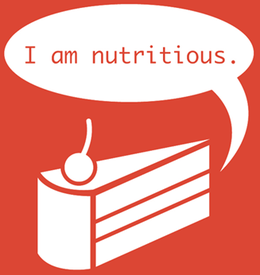Real Reasons for Obesity
Replies
-
Here's another thought- I am often fascinated by the number of experts who have great weight loss advice, but have never been obese. You can study it all you want, but try living it your whole life.
I can tell you from real experience that true weight loss takes a commitment to a healthier lifestyle, and not one of deprivation. Most diets lead to a state of feeling deprived which is why the majority of people give up on them (I did). In general most people do not get enough physical activity and need to incorporate that into their lives gradually and in a way that is sustainable.
Although I agree that the quality of food we are eating needs to change, the volume needs to match the caloric amount you are burning to maintain and less if you want to lose. True, a calorie is a calorie, but I am much better off getting my calories from "clean" sources as opposed to processed. However, in today's world it is difficult to completely avoid processed foods. You don't necessarily have to give them up, but limit your intake.0 -
Well in a lot of countries with less processed carbs, there is less obesity. But I think it's simply because processed carbs are less filling and less satisfying than more traditional, artisan-made goods, so we tend to overeat on them....0
-
This was posted in the NY Times wellness blog this week. According to Dr. Ludwig, weight loss/gain is not about CICO, but the real causes for obesity is our increasing reliance on processed carbs. Any thoughts? http://well.blogs.nytimes.com/2016/01/07/rethinking-weight-loss-and-the-reasons-were-always-hungry/?ref=health&_r=0
Considering that my mother has been obese her entire life (emotional/binge eater) and eats the healthiest diet I have ever seen, I'm thinking the real reason is CICO.0 -
Because this is an interview (as opposed to an academic paper that's couched in more scientific language), I think there is an element of oversimplification at the beginning, but it's important to read through to the end. What he is saying is that due to our overconsumption of processed carbs and sugars, we have become fat, but our brains and even our bodies don't recognize that the calories stored in our fat cells are accessible for energy. Therefore, even though we are fat, we are constantly hungry. He also discusses this theory in conjunction with insulin and Type II diabetes. In a way, I understand it. While I've never experienced this constant hunger and was never more than moderately overweight (around a 26 BMI after an injury), my husband who is overweight and diabetic and makes jokes ("fat cells never go away, they just shrink"), says he is constantly hungry and that when I can just stop eating something because I'm full, he tells me "You don't understand how a fat person thinks/feels." For example, I wear a FItbit HR, and it kind of predicts when I'll be hungry -- if the calories burned are more than I've consumed, say after exercise, I do feel quite hungry. But if I sit around all day and I've eaten what I've burned, I'm not that hungry. However, my husband can be sedentary all day and yet feel much hungrier than I do even if I'm active, and even if he's eaten much more than I have. I think this article captures the reason for that insatiability of the overweight-obese person. Ludwig's solution is to stop eating some of those foods that fuel that craving/hunger -- processed carbs, sugars, etc.
This sounds absurd. Our brains and bodies (not sure those are two separate things, but whatever) know those calories are there and will use them for energy when needed. If not then people on a deficit would starve to death while remaining fat, which is clearly not reality. The problem is if we keep eating more calories than we burn our bodies don't need to use the stored fat because they have enough fuel, plus extra to store for later.
0 -
Well in a lot of countries with less processed carbs, there is less obesity. But I think it's simply because processed carbs are less filling and less satisfying than more traditional, artisan-made goods, so we tend to overeat on them....
I work with a number of people from Asia, which historically has had the healthiest and thinnest people, who are telling me that he obesity rate is increasing there as well now that western foods are being introduced.
The "McDonald's-syndrome"...0 -
I stopped at "Dr. Ludwig"...0
-
quiksylver296 wrote: »Here's my thought - that is wrong.
/thread0 -
Need2Exerc1se wrote: »
I would rather make it a little tougher while still losing and enjoying foods I think are delicious than be miserable and give up eating like a rabbit.
Narrows eyes
Whaddayamean? I eat lots of delicious foods
:bigsmile:
You're the one rabbit who eats bacon and eggs, so you be coo'0 -
Need2Exerc1se wrote: »I thought this was an interesting response to his new book (there will be lots of articles as he is media savvy and hawking his wares)
http://wholehealthsource.blogspot.co.uk/2016/01/always-hungry-its-probably-not-your.html
#2 on his list - - Hunger is only one of the reasons we eat. We don't generally eat dessert because we're still hungry at the end of a meal. We don't drink alcohol or put cream and sugar in our coffee because we're hungry. Much of the eating we do in the affluent world has little to do with hunger-- a phenomenon researchers call "non-homeostatic eating".
I think this is the big one for many people. I think hunger is the least of our problems. If we only ate when were hungry there would be very few of us overweight.
This is what I think too, and it's why I think the argument that it's not calories is crazy. It's that calories are so easily and cheaply available and often around all the time. In that environment, it takes some effort or the development of structure or habits for many of us to avoid overeating.0 -
I think the "real reason" we are obese is a complex issue - food quality, emotional eating, advertising, portion distortion / control, metabolism, activity level / less active lifestyles... to name a few.0
-
-
i couldn't get past bingeing. it kept nagging me as i read further. is it really spelled with an e? that caused me to stop reading and google the answer. I'm no better off now. i feel it should be spelled without the e, but i guess both are acceptable. GAH! GRAMMAR!0
-
lemurcat12 wrote: »Need2Exerc1se wrote: »I thought this was an interesting response to his new book (there will be lots of articles as he is media savvy and hawking his wares)
http://wholehealthsource.blogspot.co.uk/2016/01/always-hungry-its-probably-not-your.html
#2 on his list - - Hunger is only one of the reasons we eat. We don't generally eat dessert because we're still hungry at the end of a meal. We don't drink alcohol or put cream and sugar in our coffee because we're hungry. Much of the eating we do in the affluent world has little to do with hunger-- a phenomenon researchers call "non-homeostatic eating".
I think this is the big one for many people. I think hunger is the least of our problems. If we only ate when were hungry there would be very few of us overweight.
This is what I think too, and it's why I think the argument that it's not calories is crazy. It's that calories are so easily and cheaply available and often around all the time. In that environment, it takes some effort or the development of structure or habits for many of us to avoid overeating.
There you go. Personal accountability has everything to do with whether people eat too many calories or not. So-called "bad foods", "non-homeostatic eating" or any such malarky are just scapegoats for people to blame their own lack of self-control on.0 -
missblondi2u wrote: »I couldn't get past these two little gems right up front:
"The basic premise is that overeating doesn’t make you fat."
and
"Simply cutting back on calories as we’ve been told actually makes the situation worse."
I'd say the millions of pounds lost by the users of this site would disagree.
But haven't you seen pictures of all those people in Africa with no body fat, just skin and bones? They eat plenty of food, they just cut out the processed carbs.
/s0 -
I don't believe he's entirely wrong.
Often the mantra on here of CICO is overly simplistic, IMO. (Well, I actually think lots of posts on here are overly simplistic.)
While I don't disagree that CICO does work ('cause thermodynamics), I think how easily/effortlessly it works can vary a lot depending on the individual and the types of food being eaten.
That's not expressed well. I'm in a hurry and shouldn't even be on here right now. And not interested in/don't have time to debate, either. But I predict within the next few years we'll get more and more research that will prove Ludwig to be more right than wrong.
I think what you choose to eat can make it more or less easy to not overeat (but the same is true for habits about eating, which I think can be as big a problem for many people).
But that's different than the claim that people get fat not from overeating, but from eating the wrong foods. Essentially that claim goes along with people who assert that they gain weight on low calories if they eat sugar or whatever, which is of course absurd. I think it's a popular message because some people don't want to admit they overeat (or are responsible for overeating).
I suspect a lot of the benefit of eating whole foods and cooking is from avoiding hidden calories (that aren't really hidden but we can avoid thinking about) and especially because it becomes harder to snack all the time and food is less available. For myself, I am perfectly sure that if I ate at high end restaurants all the time (with the same kinds of food I prepare at home, but restaurant-type preparations), I'd gain weight, because of all the calories and the fact I find those foods delicious, even if I didn't focus on "processed carbs" and ate lots of vegetables and protein.0 -
xmichaelyx wrote: »missblondi2u wrote: »I couldn't get past these two little gems right up front:
"The basic premise is that overeating doesn’t make you fat."
and
"Simply cutting back on calories as we’ve been told actually makes the situation worse."
I'd say the millions of pounds lost by the users of this site would disagree.
But haven't you seen pictures of all those people in Africa with no body fat, just skin and bones? They eat plenty of food, they just cut out the processed carbs.
/s
True, they may not have access to these types of foods. They probably eat to satiation, not to excess.0 -
i couldn't get past bingeing. it kept nagging me as i read further. is it really spelled with an e? that caused me to stop reading and google the answer. I'm no better off now. i feel it should be spelled without the e, but i guess both are acceptable. GAH! GRAMMAR!
LOL I always spell it with an "e". If not it looks to me like an internet search by someone that doesn't use Google. 0
0 -
JanetYellen wrote: »He's a genius (sarcasm):
The quickest way to lower insulin is to cut back on processed carbohydrates and to get the right balance of protein and fat in your diet.
Can you really make money writing books that easily?
Plenty desperate people willing to eat up whatever "easy fast weightloss" promises are made.0 -
EvgeniZyntx wrote: »I stopped at "Dr. Ludwig"...
He definitely goes in the 'crackpot' file, along with Lustig, Taubes, MercoLOLa, et. al.
What a load of unmitigated bull manure. You'd think as a PhD he would have learned something about thermodynamics and basic physiology somewhere along the way.0 -
It sounds pretty on point to me. High glycemic foods digest really quickly. Think about having just a baked potato or bottle of Gatorade. You'd get a lot of cals but barely feel any fullness. White bread, white potato, baked chips, soda, etc are all severely empty calories. If you have a lot of these in your diet and just cut back on calories you'll be super hungry and less likely to be successful. Substituting lower GI foods with more protein and fat or complex carbs helps you feel full.
Some of the statements seem to suggest that total calories don't really matter. While that's a bit extreme I think it's saying calories don't matter as much as what foods they come from. And that if you're getting quality nutrient dense foods, you'll probably require fewer calories anyway.0 -
Since I do not eat much processed food, never have, and I generally do eat low carb and high protein, how did I become overweight? I thought I had this whole thing understood, and that my portion sizes and lack of exercise was to blame. Not the little carbs and processed food I eat. (surely the wine was not to blame, it's been around for thousands of years)


 0
0 -
msharrington315 wrote: »xmichaelyx wrote: »missblondi2u wrote: »I couldn't get past these two little gems right up front:
"The basic premise is that overeating doesn’t make you fat."
and
"Simply cutting back on calories as we’ve been told actually makes the situation worse."
I'd say the millions of pounds lost by the users of this site would disagree.
But haven't you seen pictures of all those people in Africa with no body fat, just skin and bones? They eat plenty of food, they just cut out the processed carbs.
/s
True, they may not have access to these types of foods. They probably eat to satiation, not to excess.
Hmm...either that or they are actually starving.0 -
This was posted in the NY Times wellness blog this week. According to Dr. Ludwig, weight loss/gain is not about CICO, but the real causes for obesity is our increasing reliance on processed carbs. Any thoughts? http://well.blogs.nytimes.com/2016/01/07/rethinking-weight-loss-and-the-reasons-were-always-hungry/?ref=health&_r=0
My thoughts:
Ludwig = bad science
It is about CI/CO. That moron has had the audacity to state that someone eating I've 5000 calories will not gain weight if they don't eat the wrong foods. Trust nothing he says. Find a new source for information.
cosigned. While it is technically a fallacy, I think it is acceptable to outright ignore anything on nutrition that man says based on previous experience.0 -
missblondi2u wrote: »msharrington315 wrote: »xmichaelyx wrote: »missblondi2u wrote: »I couldn't get past these two little gems right up front:
"The basic premise is that overeating doesn’t make you fat."
and
"Simply cutting back on calories as we’ve been told actually makes the situation worse."
I'd say the millions of pounds lost by the users of this site would disagree.
But haven't you seen pictures of all those people in Africa with no body fat, just skin and bones? They eat plenty of food, they just cut out the processed carbs.
/s
True, they may not have access to these types of foods. They probably eat to satiation, not to excess.
Hmm...either that or they are actually starving.
I think so too, but the poster was assuming they eat "plenty of food". Probably just enough to sustain life...0 -
I guess Harvard people are smarter than I am, but all I know is I am fat and I eat too much.

Having said that, I know that carbs will be the death of me and cutting back on processed carbs can only be a good thing in my case.
People need more veggies.0 -
I can buy that throwing off the balance between carbs and other macronutrients can make it harder to lose weight and may even impact the way our metabolism processes food but to suggest that losing weight isn't about calories is just really stupid.0
-
msharrington315 wrote: »I think the "real reason" we are obese is a complex issue - food quality, emotional eating, advertising, portion distortion / control, metabolism, activity level / less active lifestyles... to name a few.
Again, I think the real answer is complex. The US Centers for Disease control has listed obesity as an epidemic...
http://www.cdc.gov/cdctv/diseaseandconditions/lifestyle/obesity-epidemic.html
"This video explains the many factors that have contributed to the obesity epidemic, and showcases several community initiatives taking place to prevent and reduce obesity. Obesity is a national epidemic and a major contributor to some of the leading causes of death in the U.S., including heart disease, stroke, diabetes and some types of cancer. We need to change our communities into places that strongly support healthy eating and active living."0 -
The 'reasoning' for it is completely bass-akwards, but it's not... wholly wrong? I mean, some processed carbs leave one feeling like they'll never be satisfied, but that still turns into overeating/CICO...
I mean, I could eat a whole loaf of cuban bread (960 cal) and still want more... but a nice big bowl of beef n noodle soup (140 cal) or hot cereal with vanilla almond milk (130-200 cal) leaves me satisfied for hours and hours and the hunger is slow to come back (unlike a bread crash where I could still say I'm hungry for an hour or so, then suddenly get the shakes). Yes, both 'whole grain' and 'white bread' do this, though I get the added benefit of feeling shaky and hungry with a rock hanging out in my stomach if I eat a whole loaf of whole grain bread. XD0 -
Trying to diet according to the latest guru is like raising your children by listening to the "experts" -- you need to be flexible because they change their minds every few years, if not more frequently. The reason why we get all of these rediculous books is because the market is flooded and the rocksteady advice by established science, which is eat less and exercise more, is just not going to line these gurus' pockets. It's like selling air and water and... oh wait... never mind I forgot how gullable people really are.
We've had a ton of diets from high protein, high carb and high fat and none of these have done anything because all diets work in the short-term and will fail in the long-term unless you adjust the lifestyle that caused the problem in the first place. There is no secret there is only constant work to maintain proper nutrition, avoid overeating, and a avoid a sedentary lifestyle and that's the long and short of it.0
This discussion has been closed.
Categories
- All Categories
- 1.4M Health, Wellness and Goals
- 398.3K Introduce Yourself
- 44.7K Getting Started
- 261K Health and Weight Loss
- 176.4K Food and Nutrition
- 47.7K Recipes
- 233K Fitness and Exercise
- 462 Sleep, Mindfulness and Overall Wellness
- 6.5K Goal: Maintaining Weight
- 8.7K Goal: Gaining Weight and Body Building
- 153.5K Motivation and Support
- 8.4K Challenges
- 1.4K Debate Club
- 96.5K Chit-Chat
- 2.6K Fun and Games
- 4.7K MyFitnessPal Information
- 17 News and Announcements
- 21 MyFitnessPal Academy
- 1.5K Feature Suggestions and Ideas
- 3.2K MyFitnessPal Tech Support Questions

















